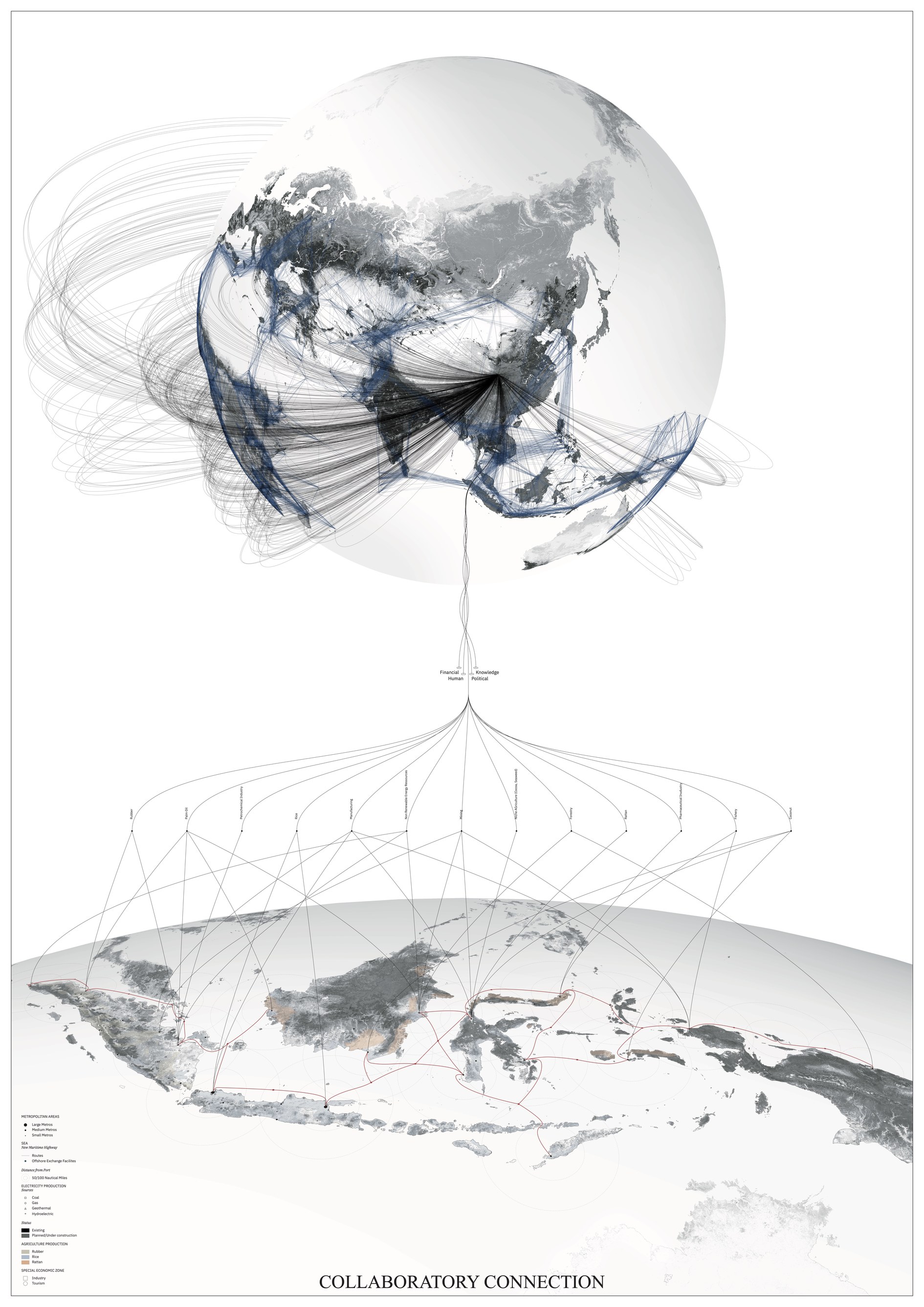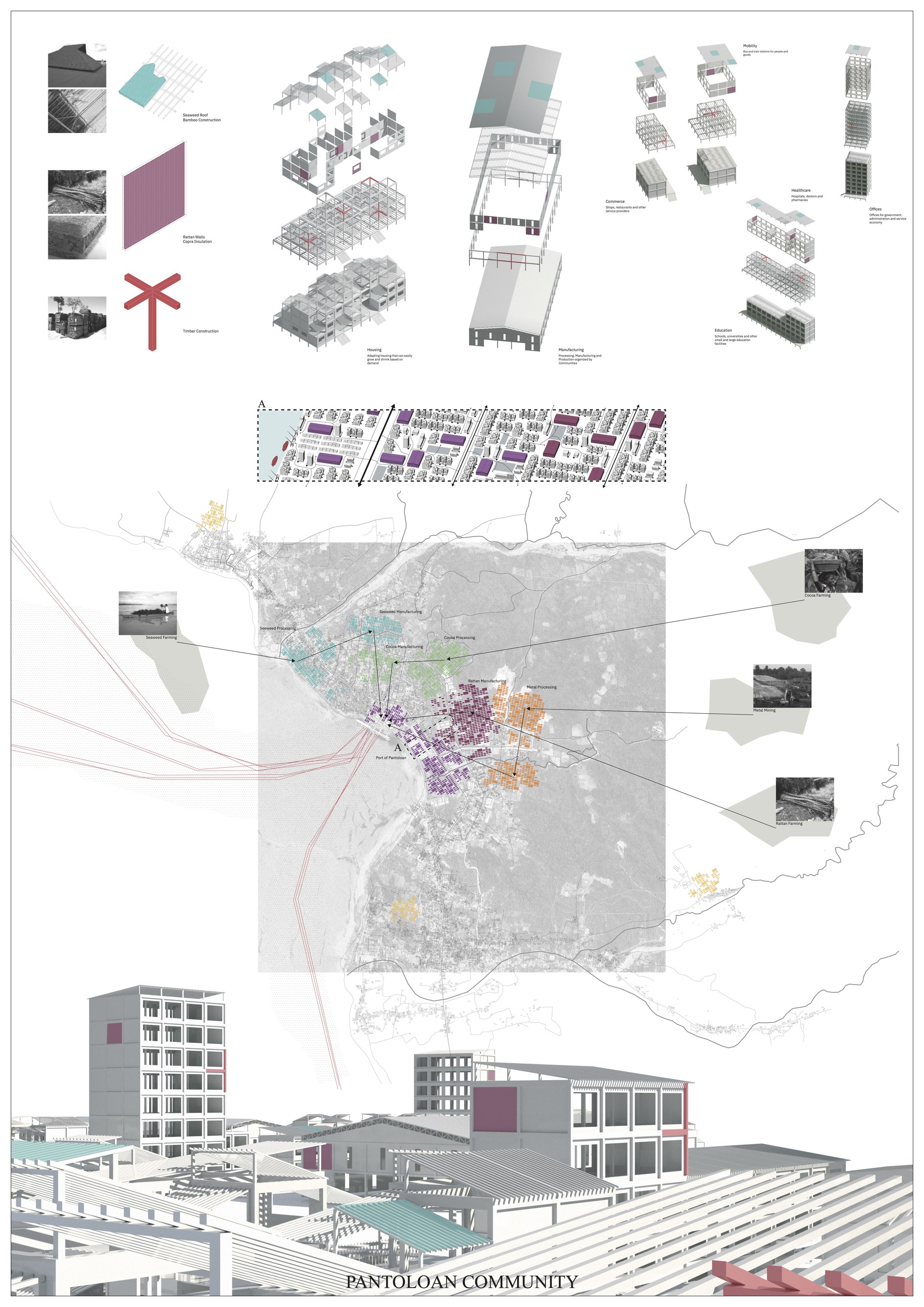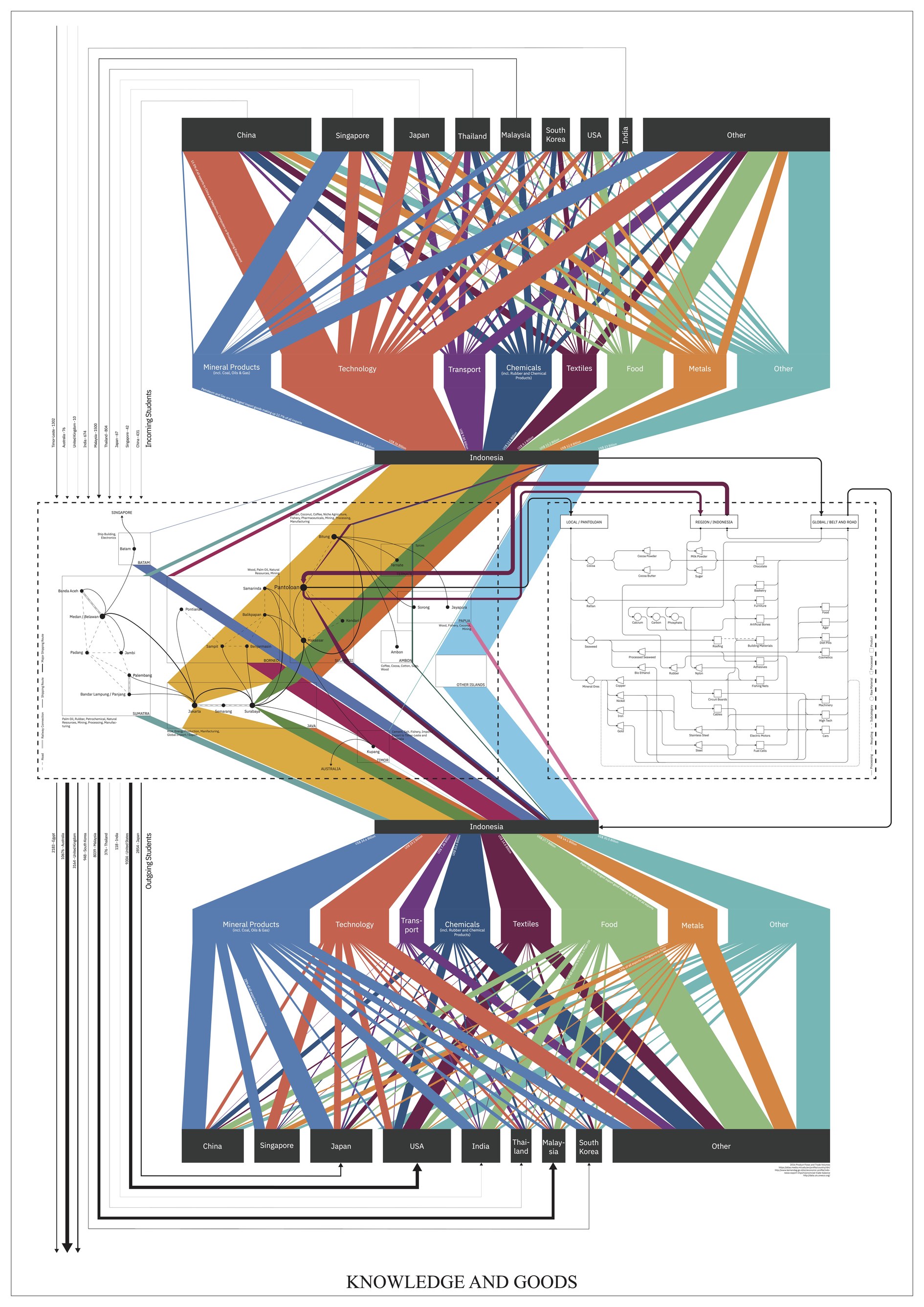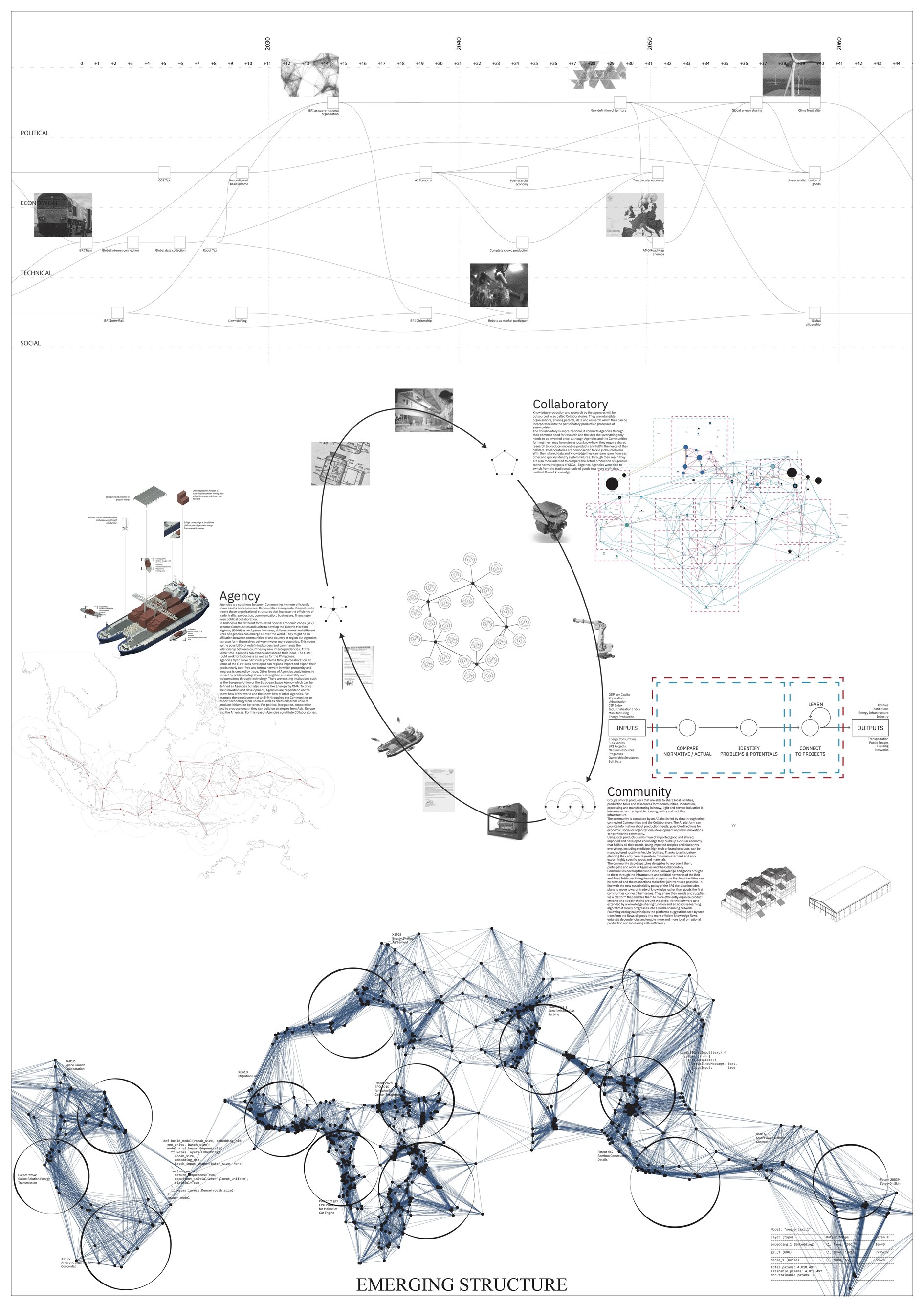In the era of China’s Belt and Road Initiative (BRI), global supply chains create cynosures of urbanism through their flow of data, investment and commodities. Non-linear frameworks of exchange are needed to ensure sustainable, climate impact directed futures in the post-Anthropocene context.
The project focuses on the port city and special economic zone Pantoloan, Indonesia, where on an urban scale, it proposes to implement a participative Community of crowd-production. The latter develop using local resources as well as building materials imported by the global networks of the BRI. This ensures future adaptation and resilience of the cities. Communities connect via an AI-based platform that helps them anticipate needs, streamline their productions and introduce new technologies and strategies.
Communities also unite to share assets, resources and the administration of such. Agencies are thus established on a territorial or national scale. The Communities located in Indonesia form an Agency to implement an Electric Maritime Highway. A network of offshore platforms reduces the distances between the islands and thus helps to introduce E-Ships that sustainably supply all islands. As a result of the bilateral exchange smaller ships can be used, still retaining the same efficiency. The latter allows small Communities to be competitive without the need to invest in large port infrastructures.
Apart from assets, Communities and Agencies require collaboration to produce knowledge and drive progress. Through their common need for research, Agencies form a Collaboratory that synchronizes efforts for research and development on a global level. Ultimately knowledge is fed back to the Communities.
Community, Agency and Collaboratory constitute together a circular supply chain mediating between the local, territorial and global, thus challenging normative linear networks.



